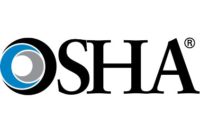"Time and again, this employer has chosen to ignore the law and, by doing so, placed its workers' lives at risk," said Assistant Secretary of Labor for Occupational Safety and Health Dr. David Michaels. "Employers who ignore basic, common-sense and legally required safeguards will face substantial fines and consequences."
The Cambridge inspection was opened when an OSHA inspector observed a Gioioso employee working in an unprotected trench on Kimball Street. During the inspection, a section of the trench wall collapsed while the employee was still in the trench. The second inspection, at Grant and C Streets in Framingham, began after a concerned passer-by informed OSHA of workers in an unguarded trench. In both cases, OSHA found that the trenches lacked cave-in protection and a ladder or other safe means for workers to exit the trenches.
As a result, OSHA has cited P. Gioioso & Sons Inc. for four willful violations, each carrying the maximum allowable penalty of $70,000.
"An unguarded excavation is only seconds away from becoming a grave," said Marthe Kent, OSHA's New England regional administrator. "While the worker in the Cambridge trench was fortunate not to have been injured when the trench's sidewall collapsed, worker safety must not and can never be left to fortune.”
The contractor also has been cited for five serious violations, with $32,000 in fines, for allowing employees to be exposed to being struck by the counterweight of an excavator at the Cambridge work site and a variety of other hazards at the Framingham work site. \
Finally, P. Gioioso and Sons Inc. has been issued three repeat citations with $42,000 in fines for trenching and electrical hazards at the Framingham work site, including failing to maintain the minimum clearance between an energized power line and excavating equipment. A repeat violation exists when an employer previously has been cited for the same or a similar violation of a standard, regulation, rule or order at any other facility in federal enforcement states within the last five years. In this case, OSHA had cited the employer in 2009 for similar hazards at work sites in Somerville, Tewksbury and Boston.
This latest significant enforcement action qualifies P. Gioioso & Sons Inc. for placement in OSHA's Severe Violator Enforcement Program, which mandates targeted follow-up inspections to ensure compliance with the law. Initiated in 2010, the program focuses on recalcitrant employers that endanger workers by committing willful, repeat or failure-to-abate violations.
Bucket lift dispute turns costly for Georgia manufacturer (7/14)
An employee who was fired after raising concerns about the proper use of a bucket lift will receive back wages with interest, thanks to a settlement reached by the U.S. Department of Labor and the Blue Bird Corp., a Georgia-based school bus manufacturer. The agreement resolves a lawsuit filed by the DOL alleging that the company illegally terminated the maintenance employee because he requested training after being required to use a bucket lift truck to install Christmas wreaths for the company.
Following the ensuing disagreement over whether the employee was trained, he was terminated.
Blue Bird must pay him $170,800 in back wages plus $5,625 in interest due on the back wages. Should the state of Georgia seek repayment of the unemployment benefits received by the employee, Blue Bird has agreed to pay that amount to the state. In addition, the company will pay the Labor Department's costs associated with the appeal in this case.
"After much litigation, we are pleased with the successful settlement of this case in favor of the employee. The courts confirmed the Labor Department's argument that every employee has the right to report any safety concerns in the workplace without fear of retaliation," said Cindy Coe, administrator of OSHA's Atlanta Regional Office. "The Labor Department will hold companies accountable when they violate basic worker rights."
An OSHA whistleblower investigation found that the employee was illegally terminated for refusing to work under unsafe conditions. When the company refused to reinstate the employee, the Labor Department's Office of the Solicitor filed suit in the U.S. District Court for Middle District of Georgia, which ruled in favor of the department. The company appealed that ruling to the U.S. Court of Appeals for the Eleventh Circuit, which agreed with the department. Following those rulings, the company has agreed to the current settlement. Prior to this settlement, the company already had reinstated the employee in his job as part of the district court's ruling.
No lessons learned from first amputation; second follows a week later
Two workers at one company working at two separate press brakes suffered amputations eight days apart last January – resulting in fines and membership in OSHA’s Severe Violator Enforcement Program for T & D Metal Products LLC of Watseka, IL.
OSHA cited T & D Metal Products LLC with four safety, including three willful, violations, after the injuries at the company's Watseka metal stamping facility.
"T & D Metal Products failed to ensure machine guarding and safety procedures were in place to protect employees, even after a worker was injured. This negligence contributed to a second worker being injured on the same type of equipment eight days later," said Tom Bielema, OSHA's area director in Peoria.
The willful violations include failing to lock out/tag out hazardous energy sources prior to performing maintenance operations and to have point-of-operation guarding on the press brakes on both Jan. 10 and Jan. 18.
One serious safety violation was cited for failing to use safety blocks when dies were being adjusted and repaired.
Proposed penalties for the citations total $214,830.
Prior to the January inspection, the company had been cited by OSHA for 47 violations since 1988.
OSHA has placed T & D Metal Products in its Severe Violator Enforcement Program, which mandates targeted follow-up inspections to ensure compliance with the law. Initiated in June 2010, the program focuses on recalcitrant employers that endanger workers by committing willful, repeat or failure-to-abate violations. T & D Metal Products LLC was placed in the program due to the company's previous OSHA violations and the egregious violations cited in the January incidents. A violation is deemed egregious when a company is cited for instance-by-instance violations of the same standard, such as failing to provide machine guarding protection.


